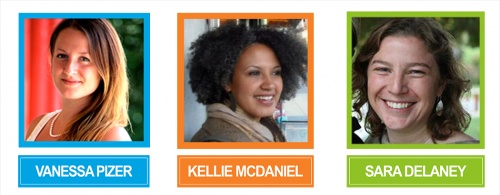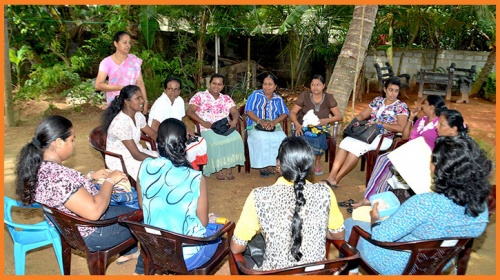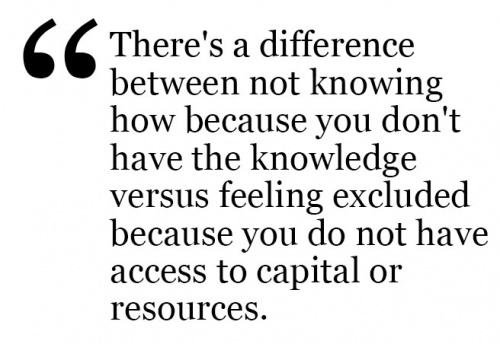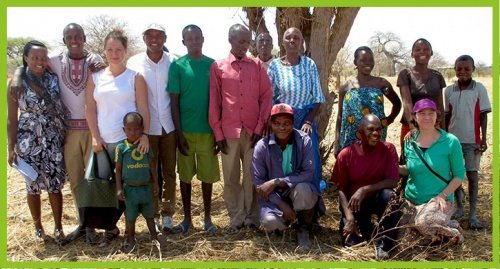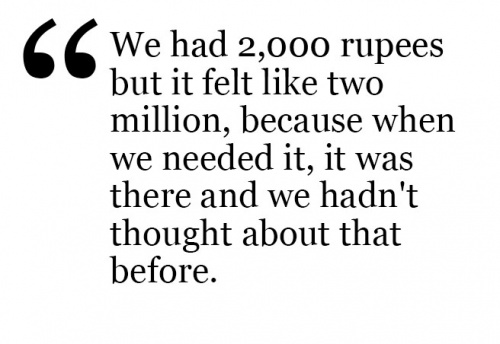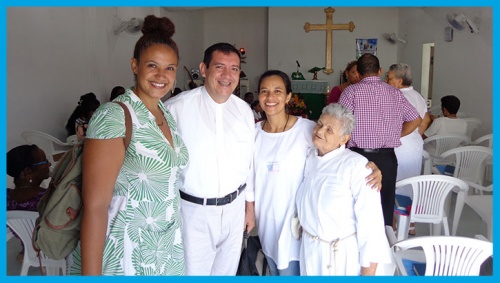In Conversation: Challenging the “Resource-Scarce” Mindset in Development
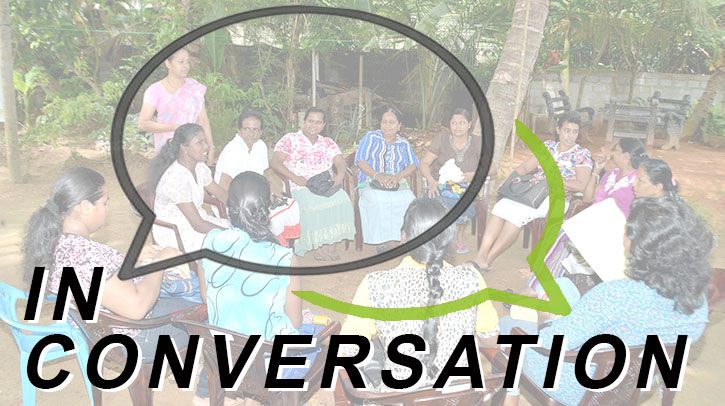
Introduction
As a relief and development organization, we are constantly engaged in exchanges for learning and growth – whether it’s through a workshop with our partners, giving a presentation at a conference or passing around an article for discussion. The practice of learning and exchange is paramount to Episcopal Relief & Development’s life as an organization.
Recently, an article from the Village Earth blog made the rounds, and three of our program officers had a chance to reflect on some of the issues it raised. Village Earth is an organization that provides training and support for a grassroots approach to development. In his article, The Economic Logic of Resource-Scarce Communities: A Guide for Western Community Workers, David Bartecchi uses examples to provide guidance for emerging development workers anchored in a predominantly western worldview of value-exchange.
What follows is a three-part conversation that happened between program officers Kellie McDaniel, Sara Delaney and Vanessa Pizer. Early on, the team thoughtfully reflected on the author’s framing of the issue from a scarcity worldview in comparison to the asset-based worldview that Episcopal Relief & Development takes. As the conversation unfolded, interesting questions were raised and important differences were identified.
We hope you enjoy the dialogue.
PART I: Talking About and Focused on Assets
Sara: What do you think about the fact that in some places the poorest families will share their last chicken? For example, there’s an outside visitor who comes and they’ll take their one chicken and kill it and make a meal, or they’ll pluck their three last mangoes from the tree and give those to a guest. The mindset is ‘this is how we do it, this is what we do. We share what we have no matter what our wealth level.’
Kellie: Yes, and they’re sharing it because they want to share it, because of the value they see in sharing it, not in the value we see in accepting it. For me ‘I don’t want them to share the chicken because I know how scarce comparatively their resources are to say mine’ – but I feel like they in fact, want to share it. So, it’s less about me being accepting of the value that I’m placing on what they’re sharing with me, than the value that they’re placing on being able and wanting to share it.
Episcopal Relief & Development: In the article, the author suggests that when someone is able to save a little bit more, or to gain a bit more abundance, it might change the dynamic of the relationship with other people in their family or community. The examples he provided suggest it could have a negative impact, and this could hinder a desire to increase their resources or improve their lives beyond a certain point.
Kellie: In relationship to the micro-finance or savings program, I haven’t heard a negative testimony or experience related to someone increasing their abundance. A story that comes to mind is the experience of a woman in Kenya who is a widow, whose husband’s family didn’t appreciate her much before he died. She joined a savings group, and as a result has identified herself, and been identified, as a leader or someone with knowledge who can help those around her. She saw the value of joining a savings group and said that the family also valued the change they saw in her; like increased access to loans, savings that she used to send her children and other family members to school, and financial literacy. Family members are now coming to her for advice and money, and she identified that as a source of strength and power and not as a nuisance or reason to underachieve.
Episcopal Relief & Development: It actually makes her feel useful.
Kellie: I think that that’s the fundamental difference between the point of view of the author and ours. We’re not talking about resource-scarcity. We’re talking about and focused on assets. One of the assets which the author does identify is social capital. We’re thinking about how to build that social capital as a resource that is just as powerful as economic capital. I think we see evidence and hear testimonies about that too.
Vanessa: I believe people, whether they live in a rural village in Africa or here in New York, have a sense of self-preservation and understand simple cost/benefit of their decisions, in a way. No one’s going to give me their only chicken if they can’t really afford it. If they’re really going to feel that missing chicken, they’re not going to give it to me. When I lived in Mali and people gave me chickens as a token of appreciation, I would say, “Thank you”, because I saw it made them happy. I know when I have people come all the way from Africa to visit me here, I also give generously. That’s where the author, I feel, is a bit removed from the people he’s talking about. When you’re actually friends with and understand the people in the community you’re meant to be assisting, you see them as people and not resource-scarce communities.
Kellie: I would agree, and another point I would like to make is that I find the question about whether or not people are hesitant to improve their situation problematic. I think people often don’t know how – it isn’t that that they don’t want to improve their situation. There’s a difference between not knowing how because you don’t have the knowledge versus feeling excluded because you do not have access to capital or resources. As we think about assets, we also need to think about spiritual assets, emotional assets and intellectual assets that people don’t necessarily know how to identify, leverage or use. I think the very fact that we come from a point of abundance can help somebody shift their point of view. We’re not talking about why people are hesitant to improve their situation, but why they don’t know how or don’t have the tools to do so.
Episcopal Relief & Development: The author talks about ‘free-riders’ and having to mitigate that. How much of a problem is that, and how have you seen communities deal with the issue as more abundance enters their lives? I’m thinking of the savings and agricultural groups in particular.
Sara: There’s no formal security net in many of the places we work. I’ve been with partners in-country and walked by someone, or someone’s come up to our car, and they give them money – one would think, in a way, they’re a free-rider, but they don’t see it like that. They don’t seem to blame the person asking for it in any way, or think that they shouldn’t help those they can. It’s similar to helping your family and neighbors.
Also, in terms of how they deal with potential ‘free-riders’, as the author puts it, regarding the savings group program – they make a lot of rules for themselves beyond what I would usually even expect for a rule. For instance, if you miss a meeting, you have to have one of three excuses. If you don’t have one of those three excuses, you pay a fine. If you are late, you pay a fine. I think they put those rules in there to make it equitable amongst themselves. They don’t have formal laws that are necessarily enforced, so they know how to do it themselves.
Kellie: That’s an interesting point. You’re right. I’ve seen the interest rate or fines appear so high for some of these groups. When you ask them, “Why is the fine twice as much as the savings?” They say, “Because we value the fine for absence, because we value every person being here and participating.” Or they have other great reasons that they give you for why they decided on a “rule”. I think it actually goes back to the author’s point about the management of risk and institutional safety nets that exist and we often see in Western culture. They don’t exist in many of the places where we work. When I think about savings groups and the rules, I think about the management of risk which we are counting, which we are labeling, it’s informal, but actually – they are formalizing it, because they know, “I’ve selected to be in the savings group with these other 20 women. I’ve selected them because I trust them.”
The ‘free-rider’, in my mind, is the person who takes a loan and then doesn’t pay it back and never had the intention of paying it back, which we’ve also seen but very rarely. The ‘free-rider’ is not the person who takes the loan and then can’t pay it back – in that case, often, the savings group members understand why they can’t pay it back, and forgive the loan.
Introduction Part I Part II Part III
PART II: Savings Groups Set Example
Episcopal Relief & Development: One of the questions the author presents is: “Why do some people seem so unwilling to save a little bit of money or contribute to the operation and maintenance of a well, pump or irrigation scheme?”
Vanessa: This article is really great for conversation and getting ideas out there, even if we don’t agree with the author’s stance on things – I think it’s actually more interesting that way. I question some of the underlying assumptions in the article, especially in his example of community members having more pressing needs for their cash than for the water pump. This is an example of a huge flaw within development. Did the author consider they’re not putting their money towards the pump because they don’t see a reason for it? Maybe they weren’t part of the discussion to have a pump in the first place and they don’t see why it’s important to their lives. They’re not invested in it and rightly so. You have no idea what they’re doing with their cash and why and what their beliefs are in this regard.
Episcopal Relief & Development: What their priorities are, what they really care about?
Vanessa: Yes.
Sara: In my first read, I did not have a strong reaction, like, “I don’t agree with what the author is saying,” as you two did, although now that I’m hearing your arguments, I agree with you – but I will say it’s a good debate, so I will play devil’s advocate. Maybe that’s interesting too.
Part of the article that I agree with and I’m still wondering if there’s some truth in it is: you both are saying that we’re all people and it’s not like ‘we think this way’ and ‘they think this way.’ People we work with are not resource-scarce in all ways. I agree with that, however I’ve also encountered a lot of challenges around risk when you are cash-scarce, because if you only have a certain budget to work with in a year, and you’re living in a risky place because you don’t have formal safety nets and you don’t have insurance, and there’s climate change, and there’s big health vulnerabilities – all these disruptions getting thrown at the families we work with. You’re less apt to want to make certain investments, to want or feel like you can make certain investments in your future – to be able to do things like buy stuff in bulk, or buy a bigger piece of machinery that might help you start a business, or make any big purchase decisions, like send a person to a better high school rather than a cheaper one – because you don’t know if you can, because you don’t know what’s coming next.
Whereas, if you’re sitting in a slightly more comfortable place, you’re not saying to yourself day to-day, “Do we have enough food for the next season?” That’s a big risk that’s taken out of the picture, you can make decisions with a different mindset. That I honestly think of as not necessarily a Western versus non-Western thing; more so, I think people in poverty everywhere have to deal with that, and I do think it changes things. Although maybe the reliance on social capital in some ways mitigates that. Your risk goes down, you don’t have to have formal safety nets, if you have other ones in your network – sometimes you can make different decisions and be like, “Well, my brother will help me if this goes wrong.”
Kellie: I don’t disagree.That’s something that I wonder about and it’s something that continuously comes up in the micro-finance program – it’s like, “Whoa, why should I save today, when I don’t know how I can use that savings in the future,” or if we consider that someone who is poor or vulnerable can be more deeply affected by an emergency, for example, mitigation of risk and a safety nets informal or not become incredibly important..
I mean, this is something I struggle with and I don’t actually know the answer to. I do agree with you, and I think part of what we do in the savings program is try to build a savings culture to help people understand the potential impact of planning and the need to mitigate risk… both of which could help them in the long run.
For example, in our recent Gender-Based Violence workshop, one of the examples that I used was Sri Lanka. The program is relatively new, so there aren’t that many savings groups in Sri Lanka. It takes time to talk to people in these communities about why saving is important. It takes time for them to change their behaviors around savings.
So, in Sri Lanka they’re working with vulnerable populations. Recently there was an explosion in one of the communities, and some of the savings group members were impacted. One group in particular had $38 in their savings box. That $38 allowed them to buy food and water. Then members of other savings groups collected funds so that the group impacted could buy more food and more water. One of the savings group members said, “We had 2,000 rupees but it felt like two million, because when we needed it, it was there and we hadn’t thought about that before.”
Vanessa: For me, I’m hearing two different things because with the savings program, you don’t generally target the poorest of the poor. You have to have a certain level of cash or economic fluidity to be part of the savings program.
Kellie: Initial participants in the savings programs are the ‘working poor’, so most need some level of income. But we are still talking about people living on less than $2 a day. In the savings program, the working poor are usually those that participate first, and a good program will ask savings group members to identify community members who are most vulnerable and who would most benefit from being a member of a savings group.
Sara: We haven’t gotten there yet and there might be some reasons why. So, savings is not reaching the poorest of the poor. The kind of issues that you’re talking about in terms of rural smallholder farmers with no cash is different than the ‘working poor’. How they prioritize and then save is harder. The thresholds for success become very different.
Vanessa: Some small-holder farmers would be able to be in savings groups, definitely, but there are some that would have a hard time contributing weekly savings. There’s a spectrum within every social group. If they’re smallholder farmers they’re still playing this high-risk game. It’s going to be high-risk every year, especially as climate patterns become more erratic. How do they manage their money because of that, and how do they depend on social capital versus institutional safety nets?
Episcopal Relief & Development: What kind of stresses does that cause for that program? Do you end up seeing a lot of collapse and then rebuild, then collapse and rebuild?
Sara: Yes, which is why we have a strong interest in getting more farmers into savings groups or getting them to save and/or have access to loans, because just that little bit of financing can make it easier year-to-year rather than just having to depend on whatever their harvest was last year. They have to figure out how to make that last. When do they have any crops to sell, and from that little bit they sell, can they put that back into seeds or whatever they need?
Kellie: I think that’s why we haven’t worked our way out a job just yet. This is where our approach comes in, which is, there are people who – farmers included – who hear about the savings program, see neighbors who are in the savings program and have heard the promotional messages and still say, “You know what, I’m not interested. I can barely get through this season, I’m not going to do it.” Now we can actually go back to some of those people who doubted and engage those who have had success. They provide testimony to their neighbor who believes they can’t join or prepare in a meaningful way for the future. That’s also part of our approach, using people to define the benefits of a program.
When you have community members, who do not see the value in changing, come together with other community members who have taken a risk and had success there is an incredible opportunity for sharing of experience, which is key to behavior change. We’ve talked, farmers’ insurance and what that looks like, or farmers having access to loans or having access to savings, and then we point to the fact that they hear stories and see improvement of other farmers. I think what really starts to change the minds of community members themselves – is not me saying, “Well, you just bought a two-liter bottle of Coke,” which I also see happen when they could barely afford a bag of rice. I can tell community members that one strategy is for them to eliminate the purchase of that two-liter bottle of Coke, but it’s actually better if somebody else in the group tells suggests it or shares how they started to save money when really they’re only making five dollars a week.
Introduction Part I Part II Part III
Part III: Trust Builds Resilience But Hard To Measure
Episcopal Relief & Development: Reflect on the author’s final questions. What do you think are the most useful, and does the Asset-Based Community Development (ABCD) methodology help account for some of these questions?
Vanessa: The first thing that comes to mind is that our focus is on building local institutions, such as our partner organizations, the Church the fact that they’re in the community, they’ve always been there, they will always be there, I think that is the part of what makes our approach so sustainable.
I totally agree with this part of the article: “Placing too much emphasis on improving the situation for individuals or isolated families may be too narrowly focused and contain an inherent Western bias. Notwithstanding, we should engage in a dialogue with communities to explore what degree the community safety net is a response to the failures, absence of, or exclusion from institutional safety nets and whether our energy would be better focused on making these institutions more comprehensive and/or inclusive.” But also how one defines ‘success’ or ‘improving one’s situation’ can differ greatly from person to person, culture to culture…
Sara: That’s one part of it, but our framework within which we work, it takes that kind of approach of recognizing that there’s a system there, that we’re building on top of that, supporting it.
Episcopal Relief & Development: And co-creating.
Vanessa: Yes, rather than assuming that we need to create a new system because people lack access to (financial) resources, it’s better to work with what they have. Our strategies build off of their assets, and the social safety nets like farmers groups, savings groups, other types of women’s support groups, is what we are really encouraging. Our work with communities, through our partners, is to facilitate the process of seeing yourself stronger when working with your neighbor and not every person for themselves.
Episcopal Relief & Development: That’s what was great about this article, it was asking, “How do you understand community assets and work with them?” and we have spent a lot of time and energy grappling with this in a deep and meaningful way, both struggling and being successful at it.
Kellie: Yes. I would agree with what you guys already said in terms of the larger picture as co-creating based on what already exists. But I also think that a sub-strategy that permeates all of our sectoral strategies anyway, or the way that we think about the international program, is based on the management of risk – but in a way that builds the resilience of communities, whether it’s building the resilience of farmers, building the resilience of survivors of violence, building the resilience of women as women, women as mothers, whether it’s building resilience as savings group members, I think that’s kind of intrinsic to what we do when we think about transformation. It’s about transformation that allows you to mitigate risk in a way that makes you more resilient to life, regardless of what type of program participant you are.
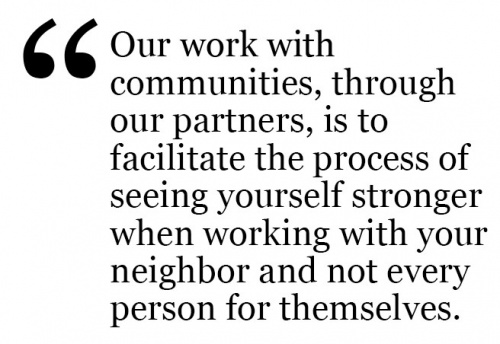
I think that that’s something that I’ve grown to love about savings, really understanding the role that economy has and the way money works in people’s lives, including in their social lives. The resilience of having a small pot of money that you can access when you need to buy medication, pay for school fees, or when you need to buy seeds, so that you can actually make decisions about your financial and social life. For me, it is about increasing resilience, and that being part of the transformation we are looking to see.
Vanessa: It’s interesting to think about the resiliency that comes from the different safety nets, and how institutional and community safety nets overlap and interact in our work. In other words, the institutional safety net that our partner organizations and the local churches provide and the communal safety net that they help build and support in the form of asset-based strategies and community groups.
Sara: Some aspects of resiliency aren’t measurable, so the trust that you are building with your community members from being in a group together, a savings group together – that builds resilience when you trust the people you live around. You can’t measure that.
That’s hard, I think – like Kellie was saying, we don’t always call it out. I think we do it in our programs, and I think actually one of the harder things is how do we measure it and communicate it? That’s something we haven’t gotten into because just even measuring the easy stuff is hard, like how many nets are being distributed, but I think there’s interest amongst us to do it somehow, sometime, because we’re talking more and more about resilience and it’s a big part of all of our work streams.
Episcopal Relief & Development: You’re seeing it and you don’t get to go, “Here’s how this has worked,” how do you measure and translate that success?
Sara: Yes, and when we did this whole process of making global indicators, I was actually thinking about: can I do a resilience one related to food security and agriculture? I got stuck because, can you really put a box around it?
You can be resilient as a farmer, maybe, but then your actual household resilience depends on all these other things that we’re talking about, your relationships and everything. Then there are research papers that I looked up but they’re using these crazy formulas to try to estimate trust with numbers. I’m like, “It’s kind of interesting,” but then I’m also like, “Is it worth trying to measure something that’s so hard to measure?”
So I don’t know. I think that’s something we’ll end up coming back to, but it’s unfortunate that it’s so important but also so hard to show.
Vanessa: The development world will continue to struggle with this because sometimes we focus on quantitative information to demonstrate our “impact” but at the expense of quality, home-grown and sustained programming. It is easy to get caught up with just numbers and then not make any lasting change at all.
Episcopal Relief & Development: There’s no building of relationships and tightening of communities and safety nets.
Vanessa: So it’s finding that balance, because we understand we need data and evidence-based information —
Kellie: That takes a long time, too.
Vanessa: — It can be to the detriment of the really important, more qualitative, people-centered processes.
Introduction Part I Part II Part III
About
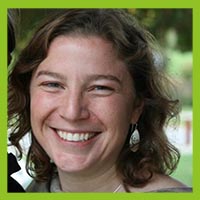 Sara Delaney is the international program officer leading on our global Agriculture and Food Security programs. She been working in the area of international agriculture for some time – first as a Peace Corps volunteer in Mali, West Africa. Then after doing a Masters in the UK, she worked in London on research and advocacy related to agriculture, water and health. before coming to Episcopal Relief & Development worked with the UN International Fund for Agricultural Development (IFAD), based in Rome, where she advised on food security issues. Seeing a farmer proudly show off their harvest brings her joy.
Sara Delaney is the international program officer leading on our global Agriculture and Food Security programs. She been working in the area of international agriculture for some time – first as a Peace Corps volunteer in Mali, West Africa. Then after doing a Masters in the UK, she worked in London on research and advocacy related to agriculture, water and health. before coming to Episcopal Relief & Development worked with the UN International Fund for Agricultural Development (IFAD), based in Rome, where she advised on food security issues. Seeing a farmer proudly show off their harvest brings her joy.
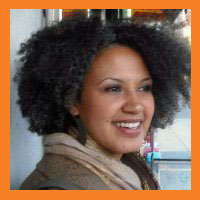 Kellie McDaniel manages the development of Episcopal Relief & Development’s global microfinance strategy and programming, focusing on strategic integration, measurable results, and scale-able impacts. Ms. McDaniel joined Episcopal Relief & Development in 2009, after working for many years in the international business sector.
Kellie McDaniel manages the development of Episcopal Relief & Development’s global microfinance strategy and programming, focusing on strategic integration, measurable results, and scale-able impacts. Ms. McDaniel joined Episcopal Relief & Development in 2009, after working for many years in the international business sector.
Kellie has a Master’s degree in International Affairs and Socio-Economic Development from The New School – Milano School of International Affairs, Management, and Urban Policy and a BA in Post-Colonial History and Communications from New York University. When asked about what brings her joy she states, “Joy is a state of mind! And I constantly work at it. I get mine from watching my three-month-old daughter giggle at everything and for no reason that I can discern, taking walks in my local park, and being near, in or listening to the ocean.”
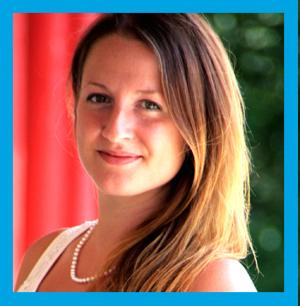 Vanessa Pizer manages a diverse portfolio of Episcopal Relief & Development’s multi-sector programs and partnerships while leading the organization’s gender-based violence strategy development and implementation. She is particularly interested in women and youth social empowerment, as well as the role of community-led natural resource management in local economic development and sustainability.
Vanessa Pizer manages a diverse portfolio of Episcopal Relief & Development’s multi-sector programs and partnerships while leading the organization’s gender-based violence strategy development and implementation. She is particularly interested in women and youth social empowerment, as well as the role of community-led natural resource management in local economic development and sustainability.
Vanessa has Master of Public Administration in Development Practice from Columbia University’s School of International & Public Affairs. Prior to joining Episcopal relief & Development, she worked in Uganda, Mali and Cambodia, mostly on projects related to natural resource management and livelihood development. What brings her joy in her job is working with dedicated colleagues and partner organizations that continuously push her to question her assumptions and practice mindfulness.
Images: Top, Feature graphic; Middle 1, Savings group in Sri Lanka; Middle 2, Sara Delaney and Vanessa Pizer pose with partners and community members in Tanzania; Middle 3, Kellie McDaniel stops to pose with partners in Colombia right before a savings group meeting.

